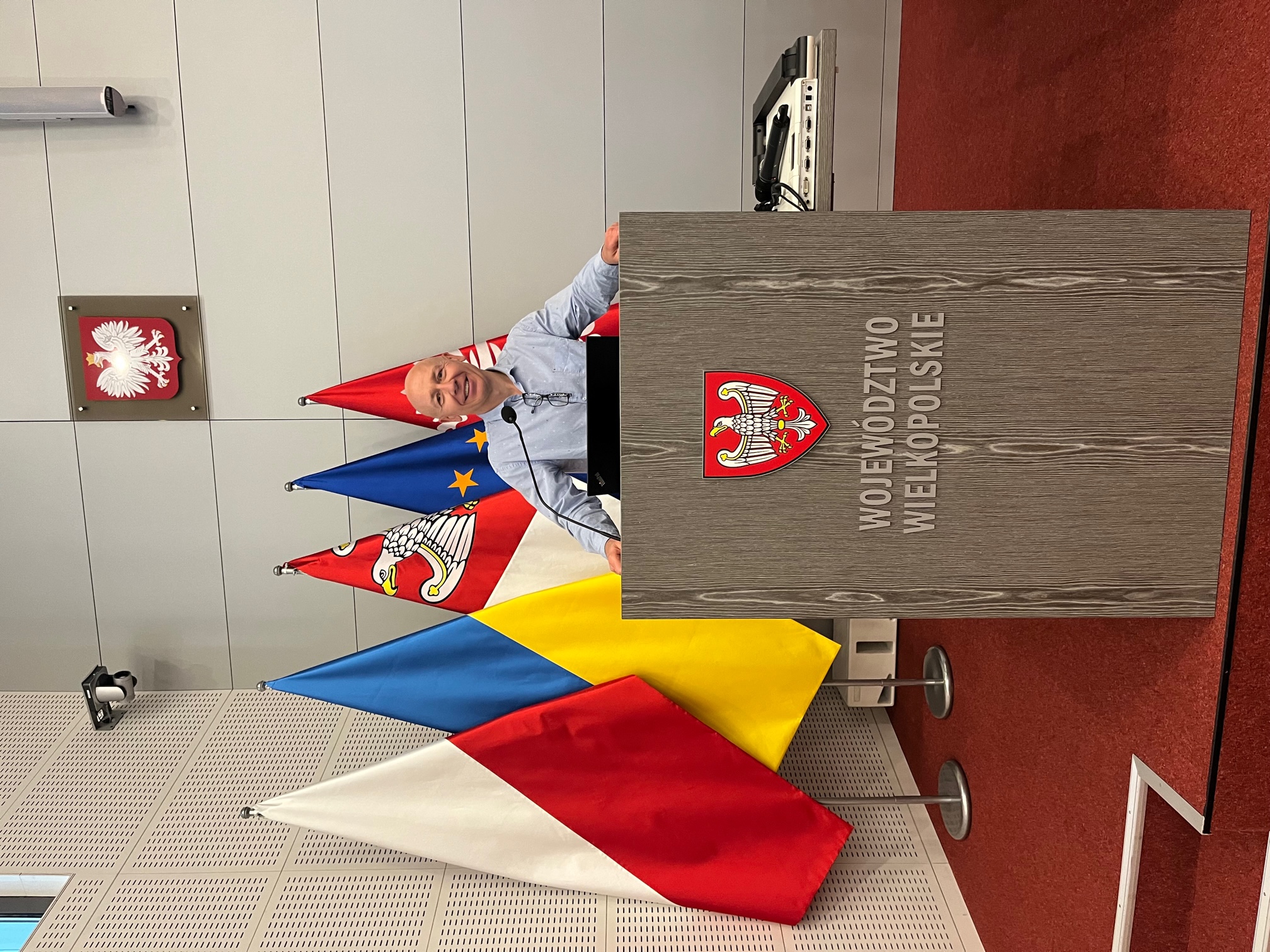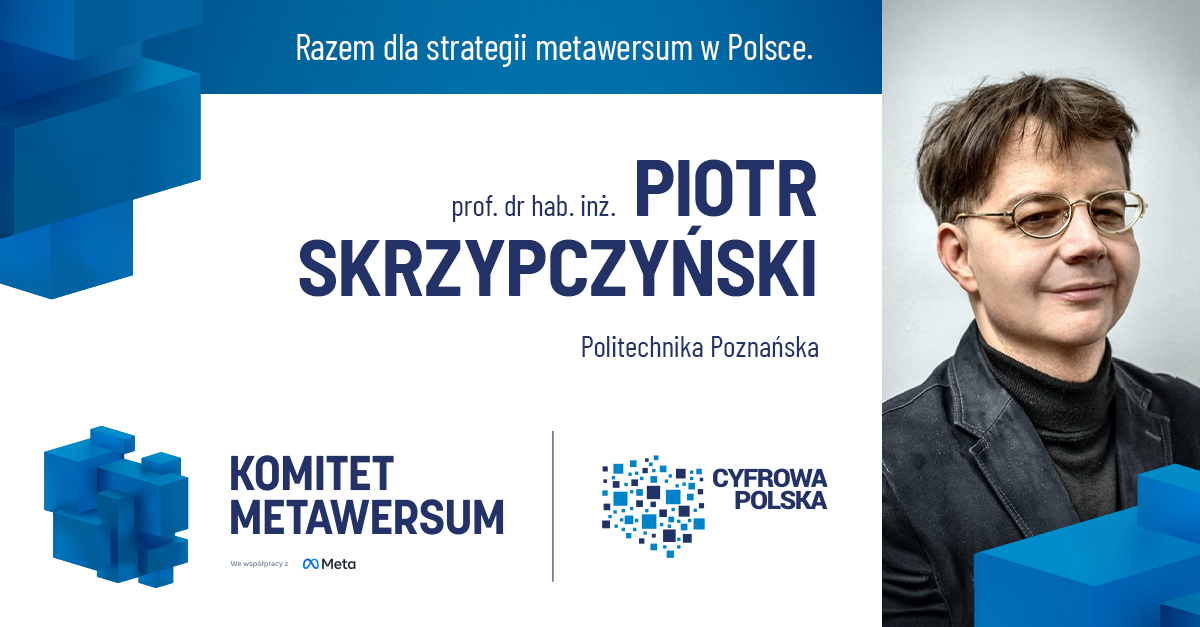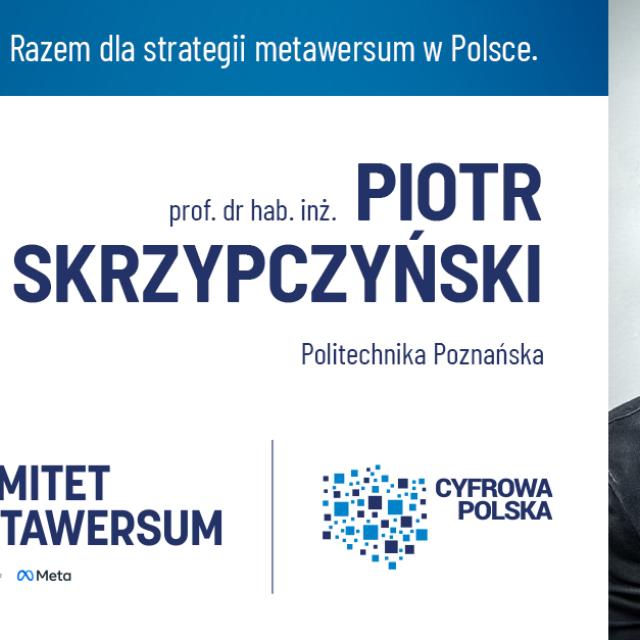The Centre for Artificial Intelligence and Cybersecurity established this year, apart from intensive acquisition of new projects, also conducts ongoing research and implementation activities.
One of the projects currently implemented at the Centre is the "ARPresence" project, financed by a grant from Meta (the parent company of Facebook), which announced an investment of $2.5 million in 2022 to support independent academic research in the use of metaverse concepts and technologies in Europe.
The project implemented at the Centre is part of the European Metaverse Research Network, an initiative bringing together seven European research centers that have received Meta grants for research on issues related to the metaverse.
In this project, scientists from the Centre deal with solutions related to augmented reality (AR) and remote participation, which aim to improve the quality of life of people susceptible to social exclusion due to age, health condition or family situation.
The topics of the metaverse, virtual and augmented reality fit perfectly into the Centre’s objectives and the scope of competences of the scientists collaborating with it. The development of technologies useful in the metaworld requires combining advanced image data processing, e.g. using deep learning techniques, with knowledge of edge and distributed processing. Since one of the conditions for accepting the metaverse as a new and attractive technology of the future Internet is security, knowledge of cybersecurity issues is also of high importance.
The technologies being developed have significant commercial potential. According to Meta's estimate, the Polish VR/AR technology market may be worth between EUR 5 and 10 billion in 2035.
To make better use of these opportunities, a Metaverse Committee was established within the Digital Poland Association, and its members include a representative of the Centre for Artificial Intelligence and Cybersecurity of the Poznań University of Technology. The Metaverse Committee is a step towards new solutions created in Poland leading to the immersive Internet!
The implementation of the national metaverse strategy will support and guide the activity of Polish innovators. The aim of developing a coherent metaverse strategy is to develop and use the potential of this technology to create a dynamic and innovative digital ecosystem that supports the economic, social and cultural development of the country. Building solutions based on high ethical standards, digital security and user protection, while maintaining innovation, creativity and freedom of expression will allow Poland to be positioned as an innovation leader in the metaverse sector. The implementation of the national metaverse strategy can stimulate the Polish innovation ecosystem in the area of digital technologies, have a positive impact on the development of new trends and create a good climate for entrepreneurship. As a member of the Committee, prof. Skrzypczyński intends to focus on the needs and opportunities as well as important regulatory solutions, primarily in the area of the use of VR/AR technology in education and selected areas of medicine, as well as on the issues of reducing digital divide.
Projects implemented at the Centre for Artificial Intelligence and Cybersecurity are part of the Smart Specializations developed in Greater Poland. On September 29, the Wielkopolska Forum of Smart Specializations and a related meeting of Working Groups took place at the Marshal's Office. The forum began with the awarding of appointments to the Wielkopolska Specialization Forum. Rectors of the Poznan University of Technology, prof. Teofil Jesionowski and prof. Wojciech Sumelka received letters of appointment. In the next part of the Forum meeting, a lecture entitled "Artificial intelligence methods" was delivered by prof. Robert Wrembel (representing the Poznan University of Technology and the Centre for Artificial Intelligence and Cybersecurity).
prof. Piotr Skrzypczyński



